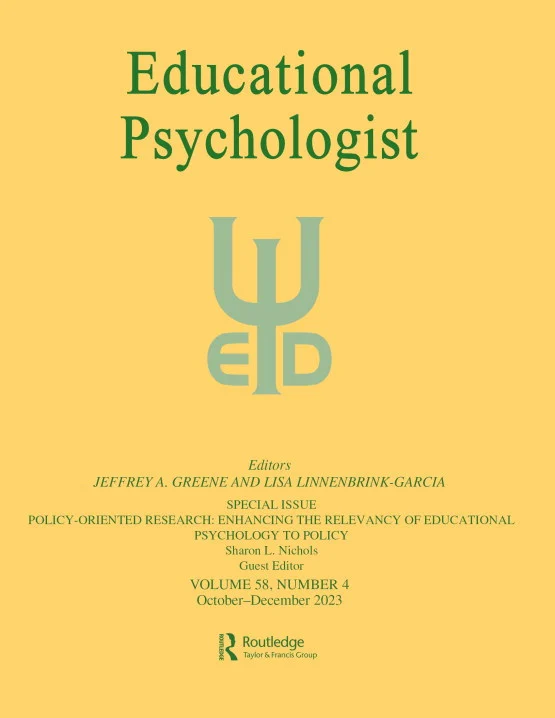Do teachers’ perceived teaching competence and self-efficacy affect students’ academic outcomes? A closer look at student-reported classroom processes and outcomes
IF 11.4
1区 心理学
Q1 EDUCATION & EDUCATIONAL RESEARCH
引用次数: 28
Abstract
Abstract Teachers’ teaching-related competence beliefs such as perceived teaching ability and self-efficacy have been linked to their occupational well-being and external evaluations of instructional quality. However, researchers have struggled to establish a reliable empirical link between teachers’ competence beliefs and students’ academic outcomes. To clarify these puzzling results, this research synthesis reviews different conceptualizations of teachers’ competence beliefs and their hypothesized effects on students, and focuses in particular on student-reported classroom processes and outcomes in authentic K–12 classrooms. This review revealed considerable ambiguity concerning the conceptualization and assessment of teachers’ competence beliefs in empirical research. Furthermore, there is a paucity of empirical evidence testing central assumptions about the associations between different types of beliefs about teaching competence, mediating processes such as instructional quality, and student outcomes in authentic K–12 settings. This research synthesis identifies important gaps in existing research that warrant attention and outlines directions for future research.教师的教学能力和自我效能感是否影响学生的学业成绩?仔细观察学生报告的课堂过程和结果
教师的教学相关能力信念,如感知教学能力和自我效能感,与教师的职业幸福感和教学质量的外部评价有关。然而,研究人员一直在努力建立教师能力信念与学生学业成绩之间可靠的实证联系。为了澄清这些令人困惑的结果,本研究综合回顾了教师能力信念的不同概念及其对学生的假设影响,并特别关注真实K-12课堂中学生报告的课堂过程和结果。这篇综述揭示了在实证研究中关于教师能力信念的概念化和评估的相当模糊。此外,在真实的K-12环境中,关于教学能力、教学质量等中介过程和学生成绩的不同类型信念之间关联的中心假设缺乏经验证据。本研究综述确定了现有研究中值得注意的重要差距,并概述了未来研究的方向。
本文章由计算机程序翻译,如有差异,请以英文原文为准。
求助全文
约1分钟内获得全文
求助全文
来源期刊

Educational Psychologist
Multiple-
CiteScore
19.10
自引率
3.40%
发文量
16
期刊介绍:
The Educational Psychologist is a scholarly journal dedicated to exploring the psychology of learning and instruction. Articles in this journal encompass a diverse range of perspectives, from examining psychological mechanisms to exploring social and societal phenomena related to learning and instruction. The journal publishes theoretical and conceptual articles, as well as reviews and meta-analyses, that significantly contribute to theory or advance the methods used to explore educational psychology. Emphasizing innovation and advancing understanding, the journal does not publish articles solely reporting the methods and results of empirical studies; instead, all submissions, including reviews and meta-analyses, must offer clear implications for advancing theory. In addition to regular articles, the journal features special issues that delve into important themes in educational psychology, along with focal articles accompanied by peer commentary.
 求助内容:
求助内容: 应助结果提醒方式:
应助结果提醒方式:


